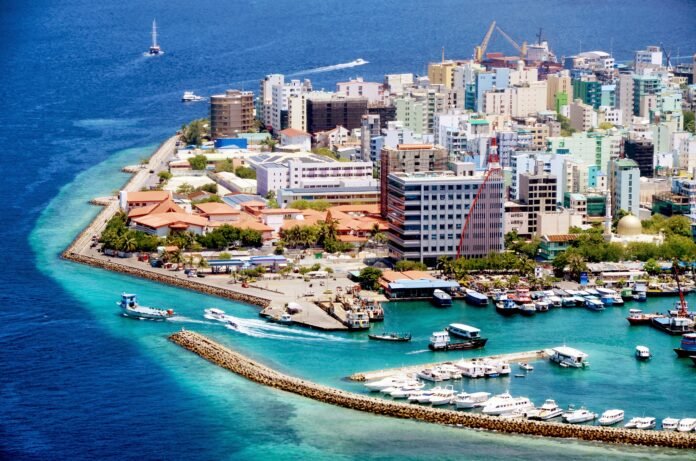Lebanon’s health insurance landscape is characterized by a fragmented system where both public and private health insurance coexist, each addressing different population segments and healthcare needs. Understanding their differences and similarities helps clarify how health coverage is provided across the country.
Public Health Insurance in Lebanon
The public health insurance system is primarily made up of the Ministry of Public Health (MoPH) coverage and the National Social Security Fund (NSSF). The MoPH focuses on providing basic health services—mainly preventive, primary, and essential curative care—to uninsured Lebanese citizens, especially the poor and marginalized groups. Services under MoPH include access to primary health care centers and government hospitals with a referral system to ensure continuum of care. The coverage is decentralized, with local committees managing enrollment and awareness, but it remains limited in scope and quality due to funding constraints.
The NSSF covers formal sector employees and their families, offering a more extensive benefits package that includes inpatient and outpatient care, maternity, chronic disease management, and work injury coverage. It is funded by contributions from employers, employees, and the government. Additional public schemes exist for military personnel, internal security forces, and civil servants, offering them more comprehensive benefits.
Despite the breadth of these schemes, coverage gaps remain, particularly for informal workers, vulnerable populations, and those outside formal employment sectors. Various NGO and health equity programs aim to fill these gaps.
Private Health Insurance in Lebanon
Private health insurance plays a crucial role in Lebanon’s healthcare system, particularly for individuals seeking higher-quality, faster, and more comprehensive services, including access to private hospitals and international care. The private sector caters to a broader spectrum of needs—ranging from basic hospitalization to full international plans including outpatient care, dental, maternity, cancer treatment, and medical evacuation.
Leading private insurers such as Bankers, Fidelity, Medgulf, ALICO, and LIA dominate the market with diversified products for individuals, families, and corporate clients. Many private insurers offer customizable plans, greater hospital choice, and quicker claim processing. International plans are also available through providers like Allianz and AXA, targeting expatriates and wealthier locals who require global medical access.
Key Differences
- Scope of Coverage: Public insurance mainly covers basic and essential health services with limited benefits, while private insurance offers comprehensive coverage including specialized treatments, outpatient services, and international care options.
- Target Population: Public insurance focuses on uninsured citizens, formal sector employees, and vulnerable groups; private insurance targets a wider range including high-income individuals, expatriates, and corporate clients.
- Funding: Public schemes are funded through government budgets and payroll contributions, whereas private insurance relies entirely on premiums paid by policyholders.
- Access and Quality: Private insurance grants access to a wider hospital network, including private facilities, and generally offers faster and higher-quality care. Public insurance access can be limited by resource constraints.
- Flexibility: Private plans are more customizable and flexible compared to standardized public schemes.
Key Similarities
- Both systems aim to provide financial protection against health costs.
- Both cover a range of inpatient and outpatient services, though with varying depth.
- Public and private insurance often coexist in the same patient’s coverage portfolio, with public insurance covering basic needs and private plans supplementing them.
Top Public Health Insurance Schemes in Lebanon
Lebanon’s public health insurance system comprises several key schemes designed to provide health coverage mainly to formal sector workers, civil servants, military personnel, and uninsured or vulnerable populations. The fragmented system reflects the country’s complex socio-political structure and ongoing economic challenges. Below is an overview of the main public health insurance programs, their costs, services, eligibility, financial features, and consumer satisfaction.
1. Ministry of Public Health (MoPH) Coverage(Official website: https://www.moph.gov.lb/en/Pages/9/1024/the-ministry)
- Cost:
Free for uninsured Lebanese citizens, particularly targeting the poor and marginalized. Funded by the government budget and international aid. - Available Services / Coverage Features:
Provides essential primary health care (PHC) services, preventive care, early diagnosis, basic curative treatment, and referral to government hospitals. It emphasizes vaccinations, maternal and child health, and communicable disease control. - Open For:
Uninsured Lebanese citizens not covered by other schemes, with priority for low-income and vulnerable groups. - Core Financial Features:
Government-financed with donor support; no premiums charged to beneficiaries. - Consumer Satisfaction:
Mixed. While accessibility is valued, consumers often report limitations in quality, long wait times, and lack of specialized services, especially outside urban areas.
2. National Social Security Fund (NSSF)(Official website: https://www.cnss.gov.lb/)
- Cost:
Contributions are shared among employer (7.5%), employee (7.5%), and the government (1%), with total premiums calculated on wages. - Available Services / Coverage Features:
Covers inpatient and outpatient care, maternity benefits, work injury compensation, chronic disease management, and hospitalization in private and public facilities. Offers a wider range of services than MoPH. - Open For:
Formal sector employees and their families. - Core Financial Features:
Social insurance model with payroll contributions; faces financial sustainability challenges due to economic crisis and informal employment. - Consumer Satisfaction:
Moderate to high among formal employees, praised for broad coverage but criticized for bureaucratic delays and claim processing.
3. Military and Security Forces Health Funds
- Cost:
Funded through government budgets; no premiums charged to members. - Available Services / Coverage Features:
Comprehensive medical and hospital care, including specialized services, medications, and rehabilitative care for military and police personnel and their families. - Open For:
Military, internal security forces, and associated personnel. - Core Financial Features:
Fully government-funded; benefits often superior to civilian schemes. - Consumer Satisfaction:
Generally high within the covered groups, with timely access to quality care.
4. Civil Servants Cooperative
- Cost:
Funded through government contributions and civil servant payroll deductions. - Available Services / Coverage Features:
Health benefits similar to NSSF including inpatient, outpatient, and maternity care, plus access to specialized treatment. - Open For:
Civil servants and their dependents. - Core Financial Features:
Funded via payroll and government subsidies; operates as a cooperative. - Consumer Satisfaction:
Moderate, with feedback indicating acceptable service levels but occasional administrative inefficiencies.
5. Health Equity Funds (HEFs) and NGO Programs
- Cost:
Fully subsidized for poor and vulnerable populations. - Available Services / Coverage Features:
Targeted programs providing access to essential health services, vaccinations, maternal health, and treatment for communicable diseases. - Open For:
Poor, displaced persons, refugees, and marginalized groups. - Core Financial Features:
Donor and NGO funded, with government coordination. - Consumer Satisfaction:
Positive among beneficiaries for improved access; however, coverage is limited in scope and duration.
Top 5 Private Health Insurance Providers in Lebanon
Lebanon’s private health insurance market is competitive and diverse, offering a range of comprehensive plans that cater to individuals, families, corporates, and expatriates. These insurers provide broader coverage options, quicker access to private healthcare facilities, and additional benefits beyond basic public schemes. Below is a detailed overview of the top five private health insurers in Lebanon based on market presence, turnover, and service quality.
1. Bankers
- Cost:
Premiums vary depending on plan type and coverage level; typical individual plans start from around $500 annually, with comprehensive family plans costing several thousand dollars. - Available Services / Coverage Features:
Offers comprehensive inpatient and outpatient coverage, maternity, chronic disease management, dental, optical, and emergency care. Access to a wide network of private and international hospitals. - Open For:
Individuals, families, and corporate clients; open to Lebanese residents and expatriates. - Core Financial Features:
Financially stable with extensive risk pooling; claims processing is efficient with digital service options. - Consumer Satisfaction:
High, praised for customer service, claim responsiveness, and broad hospital access.
2. Fidelity Insurance (Official website: https://www.fidelity.com.lb/)
- Cost:
Mid-range premiums with options for tailored coverage; individual plans often start around $400 annually. - Available Services / Coverage Features:
Covers hospitalization, outpatient care, maternity, preventive care, and specialized treatments. Includes flexible add-ons like dental and vision. - Open For:
General public, corporate clients, and expatriates. - Core Financial Features:
Strong financial backing, with emphasis on customizable plans and direct billing agreements. - Consumer Satisfaction:
Generally positive, with good feedback on plan flexibility and network breadth.
3. Medgulf(Official website: https://www.medgulf.com.lb/)
- Cost:
Competitive pricing with tiered plans; individual premiums typically begin at $350 annually, increasing with added benefits. - Available Services / Coverage Features:
Comprehensive medical, surgical, outpatient, maternity, and chronic condition management. Regional hospital network with some international partnerships. - Open For:
Individuals, families, and businesses, including expatriates. - Core Financial Features:
Solid financial reserves and risk-sharing practices; supports digital claims submission. - Consumer Satisfaction:
Moderate to high; customers appreciate plan options and hospital access but occasionally note claim delays.
4. ALICO Lebanon
- Cost:
Premiums tend to be higher, reflecting international brand quality; starting around $600 annually for individuals. - Available Services / Coverage Features:
International-standard plans covering inpatient/outpatient care, maternity, cancer treatment, emergency evacuation, and wellness programs. - Open For:
Individuals, expatriates, and corporates seeking global coverage. - Core Financial Features:
Backed by strong international financial strength and reinsurance. - Consumer Satisfaction:
High, especially valued for global network access and comprehensive benefits.
5. Lebanese Insurance Association (LIA)(Official website: https://www.liaassurex.com/)
- Cost:
Variable depending on insurer partners; generally mid- to high-range premiums starting from $450 annually. - Available Services / Coverage Features:
Diverse health insurance products covering hospitalization, outpatient care, maternity, chronic illnesses, dental, and preventive care. - Open For:
Individuals, families, corporate clients across Lebanon. - Core Financial Features:
Aggregates multiple insurers under one association, enhancing risk pooling and service quality.
Consumer Satisfaction:
Moderate to high, with noted strengths in customer support and claim transparency.
READ MORE: Private and public health insurance of Indonesia (Make informed choices)


